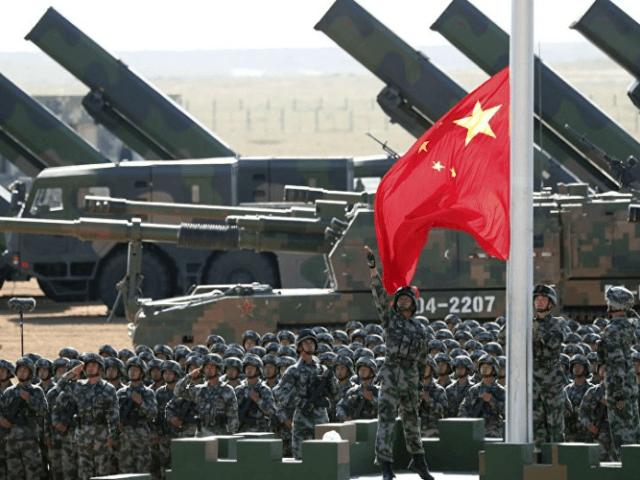A security firm called Strider Technologies published a report this week that said China paid leading scientists at America’s Los Alamos National Laboratory hefty sums of money to conduct research for the Chinese Communist government, including research with military applications that could threaten U.S. national security.
The report, titled The Los Alamos Club: How the People’s Republic of China Recruited Leading Scientists from Los Alamos National Laboratory to Advance its Military Programs, offered a rather straightforward answer to its titular question — China recruited those scientists by offering them up to a million dollars each, and at least 154 of them accepted.
The Strider report is an extraordinarily detailed look at a problem that has been discussed at length in recent years, China’s extremely aggressive “talent recruitment” programs. The People’s Republic of China puts a great deal of effort into recruiting talented foreigners to serve its purposes, often without emigrating to China or leaving the positions they hold in free nations. Often, but not always, these recruitment programs target foreign citizens of Chinese heritage.
The most notorious of these initiatives is called the Thousand Talents Program (TTP). Many of the scientists in the Strider report were involved in TTP or its youth wing.
China’s recruitment activities often look a lot like espionage or technology theft, and sometimes participants are prosecuted for such, including employees of the Los Alamos National Laboratory. Other scientists and academics have been disciplined or fired by U.S. institutions for failing to disclose the full extent of their work for China. The National Institutes of Health (NIH) in April 2021 told a Senate committee that over 500 federally funded scientists were under investigation for possible links to China and other foreign powers.
The Los Alamos Club report said it was not alleging any “illegal activities” were conducted by the people or institutions it studied, but the patterns it uncovered were disturbing nonetheless.
The extent to which these initiatives are active in U.S. government laboratories is unknown. However, China’s recruitment of individuals who have worked at the Los Alamos National Laboratory in New Mexico reflects the ambitions of the PRC’s talent strategy and its exploitation of Western commitments to global scientific collaboration.
The PRC’s success among former Los Alamos affiliates, along with support for China’s talent programs from Chinese Communist Party (CCP) General Secretary Xi Jinping and other top CCP leaders, suggest that similar recruitment efforts may be widespread among U.S. government-funded laboratories, academic research institutions, and major centers of innovation.
Moreover, the Los Alamos case shows how China’s rapid advances in certain key military technologies are being aided by individuals who participated in sensitive U.S. government-funded research.
The report essentially accuses China of exploiting the openness of American government and private institutions by sending Chinese academics and scientists abroad, where they are often welcomed with open arms and put in positions that allow them to study cutting-edge technology and research. The Chinese scientists are then brought home to add all they have learned to Beijing’s ever-growing inventory of pilfered technology.
“The Los Alamos case shows how China’s rapid advances in certain crucial military technologies are being aided by individuals who participated in sensitive U.S. government-funded research,” the report said.
“Our research shows the PRC has seen a significant return on their investment with advances in critical military technologies. Now, more than ever, it is a national security imperative for the U.S. and our allies to identify and protect leading talent in both the public and private sectors,” Strider CEO and cofounder Greg Levesque urged.
NBC News on Wednesday talked to some defenders of talent-sharing programs who said the U.S. still benefits from hosting visiting Chinese experts, but the imbalance of sensitive knowledge China obtains from these programs is growing.
“We have benefited enormously from the inflow of Chinese talent, and I hope that we can continue to do that – it’s essential to the United States. But China is now developing weapons systems, capabilities, doctrines and, frankly, attitudes toward its own power that means we have to go back to the drawing board in some of these areas,” said China expert Robert Daly of the Wilson Center.
“National security and defense require fierce protection of critical technology development, even as we safeguard the open science research that underwrites the United States’ technology leadership,” the U.S. Energy Department said in response to the Strider report.

COMMENTS
Please let us know if you're having issues with commenting.